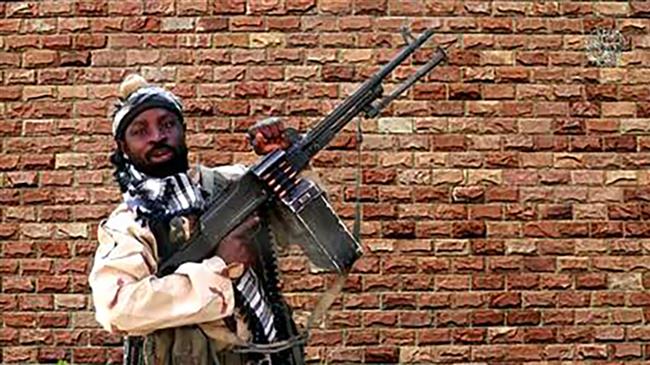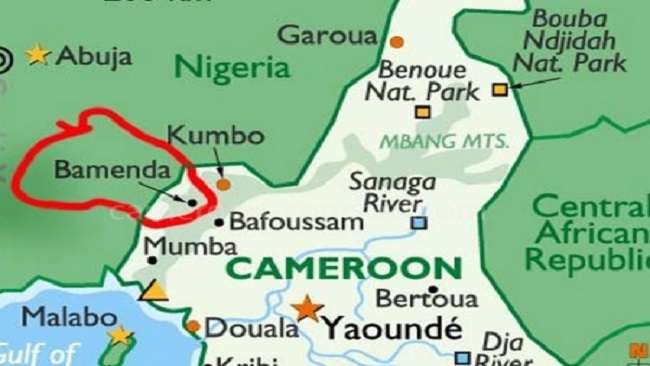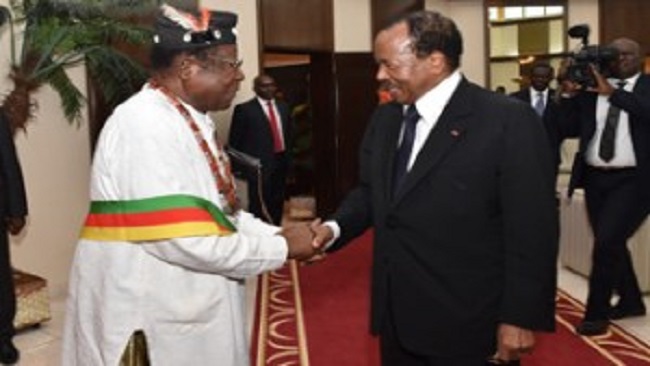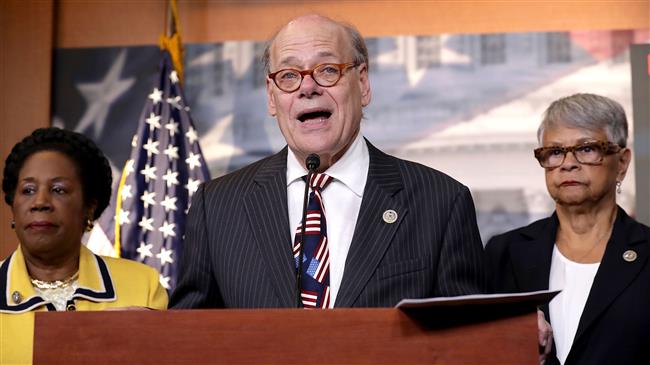20, February 2018
Boko Haram attacks village in Nigeria, fails to abduct girls 0
Takfiri Boko Haram militants have attacked a village in northeast Nigeria, unsuccessfully attempting to kidnap girls at a boarding school there.
Eyewitnesses said on Monday that a convoy of pickup trucks belonging to Boko Haram militants descended on Dapchi Village in the Bursari area of Yobe State around 6 pm (1700 GMT).
“When they stormed the village, they began shooting and setting off explosives,” said resident Sheriff Aisami. “This drew the attention of the girls in the Girls Science Secondary School, so the girls and the teachers were able to escape before the attackers got into the school.”
Unable to kidnap the girls, the Boko Haram fighters looted the school before fleeing.
It was not clear whether the violence caused any casualties.
“Obviously, the attack was meant to abduct school girls, but luckily they found none of the girls as they were taken away by teachers before they (the militants) arrived,” said a member of a local civilian militia battling the extremists.
Boko Haram notoriously kidnapped more than 200 schoolgirls from the town of Chibok in April 2014.

Separately, Nigeria’s Justice Ministry announced on Monday that more than 200 people have been convicted in Nigeria on charges related involvement with Boko Haram.
The convictions of 205 people in mass trials marked the conclusion of the second stage of the country’s biggest legal action against Boko Haram, which began a militancy in 2009 aimed at toppling the government.
“Most of them were convicted for professing to belong to the terrorist group, (or) concealing information about the group which they knew or [were] believe[d] to be of material assistance that could lead to the arrest, prosecution or conviction of Boko Haram members,” the Justice Ministry said in a statement.
Jail terms ranged from three to 60 years, said the ministry.
It also said a total of 526 people allegedly affiliated with Boko Haram had been released for rehabilitation during the second stage, and said 73 cases had been adjourned.
Since 2009, the Boko Haram militancy has left at least 20,000 dead and made over 2.6 million others homeless.
Nigerian President Muhammadu Buhari, a former general, came to power in 2015 on a platform of stamping out the Boko Haram militancy. But despite retaking swathes of territory from the group, it continues to stage attacks targeting both civilians and military targets.
Source: Presstv



























20, February 2018
Understanding the Southern Cameroons Struggle 0
Separatists in Cameroon’s restive English-speaking regions have faced a violent crackdown since declaring the creation of “Ambazonia”, a self-proclaimed republic independent from the majority French-speaking country.
The violence has helped fuel support for a growing separatist movement, including armed groups, who in turn have carried out a string of attacks on police and the military. Dozens on both sides have died, and tens of thousands have fled into neighbouring Nigeria.
ENGLISH
The political drive for the separatist cause began in 2016 after police broke up demonstrations by English-speaking lawyers and teachers who protested against working in French.
The Cameroon Anglophone Civil Society Consortium (CACSC), locally known as “the Consortium”, was formed to campaign against what they viewed as discrimination and marginalisation by the francophone majority.
Although it campaigned for federal ties — not secessionism — the campaign met with unyielding opposition from octogenarian President Paul Biya.
The Consortium was dissolved in January 2017, two of its leaders were arrested, and within the anglophone protest movement, the pendulum began to swing in favour of independence.
On October 1, prominent leader Sisiku Ayuk Tabe declared the self-proclaimed republic of “Ambazonia”, named after Ambas Bay on the Atlantic Ocean. The state has not been recognised internationally.
Biya countered with a crackdown and enlisted the help of neighbouring Nigeria in denying a haven to the “terrorists”.
ASYLUM
In January, Ayuk Tabe and 46 of his supporters were extradited by Nigeria to Cameroon despite claims that many of them had lodged asylum applications.
In this climate of spiralling mistrust and revenge, calls for separatism, rather than federalism, are dominant.
The loudest calls have come from the Southern Cameroons Ambazonia Consortium United Front (SCACUF), headed by Ayuk Tabe, which advocates peaceful means to advance independence.
Many of its members are activists with a background in teaching, law or farming, but it also counts former leaders of the outlawed Southern Cameroon National Council (SCNC), which began the campaign for independence back in 1995.
“Negotiations are our best weapon,” said Millan Atam, a SCACUF leader.
But since the crackdown and the roundup of Ayuk Tabe, the peaceful stance is being outflanked by radicals, some of whom advocate taking up arms against “the colonialist occupying forces”.
KIDNAPPING
The International Crisis Group (ICG) estimates that there are likely to be several hundred fighters.
On February 11, these groups and some other separatist movements gathered in an umbrella organisation called the Ambazonia Recognition Collaboration Council (ARCC).
Its most prominent member is a firebrand former student trade unionist, Lucas Cho Ayaba, who heads an armed group that calls itself the Ambazonia Defence Forces (ADF).
The ADF claimed responsibility for kidnapping a government official on Sunday in Batibo, a town near the Nigerian border.
It says it has “thousands of fighters,” although commentators say the figure more likely to be around a hundred or so.
“We have a bloc defence strategy — every village, every group of young people can fight for Ambazonia, and we are ready to help them,” he told AFP.
FORCE
Another armed group is Southern Cameroons Defence Forces (SOCADEF), led by Ebenezer Akwanga, like Cho Ayaba an ex-student trade unionist.
In the late 1990s, the two were allies in challenging the moderate strand of separatism, taking their slogan about “the force of argument” and reversing it, to “the argument of force.”
The ADF and SOCADEF have claimed responsibility for most of the attacks in the anglophone areas. Other smaller, armed factions are also engaged in the conflict, such as the Tigers of Ambazonia, Vipers and the Ambaland Forces, but their impact is unclear.
Attempts have been made to unite the various independence groups, with at least four “conclaves” in Nigeria. The groups have so far failed to unite behind a single leader or structure.
“Today, we are divided, it can not work like this,” a leader said via the WhatsApp messenger service.
Source: AFP